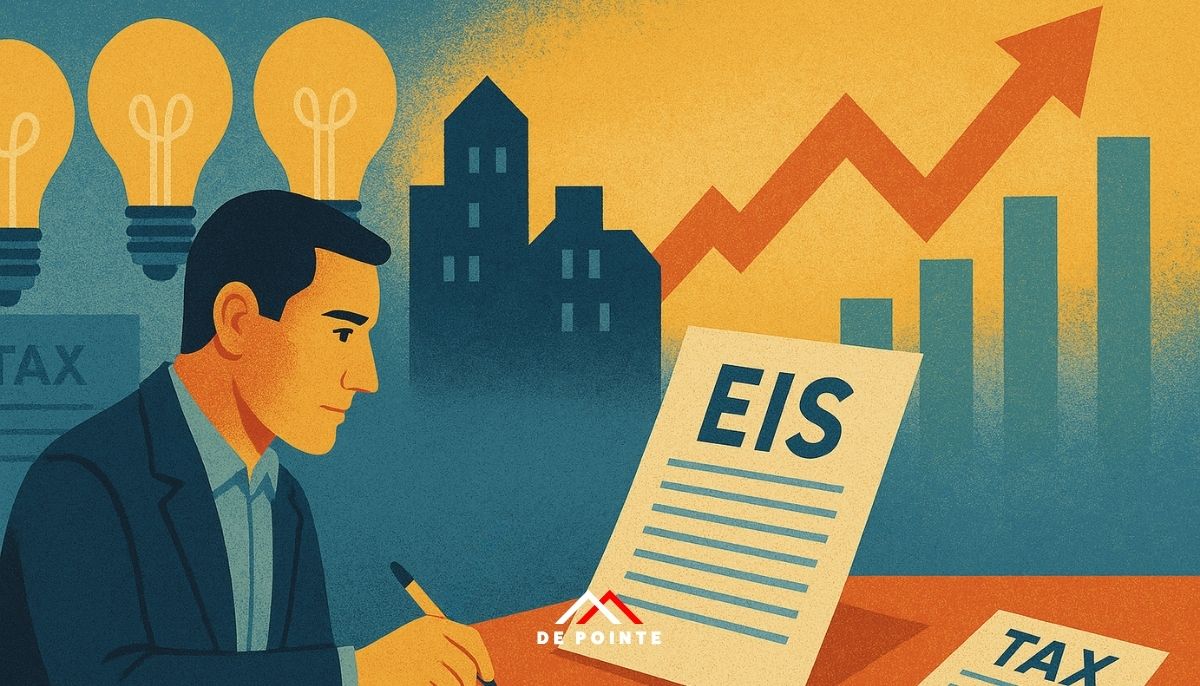Article

For investors seeking tax-efficient exposure to early-stage, high-growth UK businesses, the Enterprise Investment Scheme (EIS) remains one of the most compelling government-backed investment initiatives. Introduced in 1994, EIS was designed to encourage investment into smaller companies that might otherwise struggle to attract capital. Three decades later, it continues to play a pivotal role in the UK’s innovation economy — and for investors, it offers a unique blend of tax reliefs and upside potential.
What Is the Enterprise Investment Scheme?
The EIS is a UK government initiative that allows private investors to buy shares in qualifying small and medium-sized enterprises (SMEs) while enjoying a range of tax advantages. The goal is to stimulate growth and innovation by incentivising investment into companies that drive the next wave of UK economic expansion — from clean energy and biotechnology to fintech and artificial intelligence.
Key Tax Benefits of EIS Investments
EIS investments are not only high-growth opportunities; they are also highly tax-efficient. The following benefits apply to qualifying investors:
- Income Tax Relief:
- Investors can claim up to 30% income tax relief on investments of up to £1 million per tax year, or £2 million if at least £1 million is invested in knowledge-intensive companies.
- Capital Gains Tax (CGT) Exemption:
- If EIS shares are held for a minimum of three years, any profits realised on disposal are free from Capital Gains Tax.
- Loss Relief:
- Should the investment fail, investors can offset losses against income or capital gains, significantly reducing downside risk.
- CGT Deferral Relief:
- Investors can defer existing capital gains by reinvesting them into an EIS-qualifying company, deferring payment until the new investment is sold.
- Inheritance Tax (IHT) Relief:
- EIS shares typically qualify for 100% Business Relief after two years, making them exempt from Inheritance Tax.
Who Qualifies for EIS Investments?
EIS eligibility applies to UK taxpayers who purchase shares in an EIS-approved company. The investor must not hold more than 30% of the company’s share capital and must retain the shares for at least three years to benefit from the associated tax reliefs.
Companies must also meet strict qualifying criteria, including limits on size, sector, and age — typically employing fewer than 250 staff and having gross assets of less than £15 million before the investment.
Risks and Considerations
While the tax incentives are attractive, EIS investments are inherently high-risk. The companies that qualify are often early-stage ventures without proven track records, meaning investors face potential losses alongside opportunities for outsized returns. Liquidity is another consideration — EIS shares are not publicly traded, and exit timelines may vary widely. For these reasons, EIS opportunities are best suited to experienced investors.
Why EIS Appeals to Modern Investors
In an environment of rising taxation and volatile markets, EIS represents a practical mechanism for sophisticated investors to enhance returns while reducing tax exposure. It also aligns with the growing desire among investors to back innovation, sustainability, and UK-based growth sectors.
For portfolio diversification, EIS can complement traditional asset classes such as equities, bonds, or property. When combined with tangible alternatives like art or gold, it forms part of a well-balanced, multi-asset strategy.
How to Access EIS Opportunities
Investors can participate directly by subscribing to shares in EIS-approved companies or through EIS funds, which pool capital and allocate it across a range of qualifying businesses.
De Pointe Research conducts due diligence and performance analysis on select EIS funds and companies that have demonstrated consistent delivery of investor value while adhering to HMRC compliance. For investors seeking exposure to the UK’s growth economy in a tax-efficient structure, EIS can be a valuable addition to a long-term portfolio.
Disclaimer: This blog is for informational purposes only and does not constitute financial, tax, or investment advice. Investments made under the Enterprise Investment Scheme (EIS) involve risk, and investors may not get back the full amount invested. EIS-qualifying companies are typically early-stage businesses and may be illiquid, volatile, or fail entirely. The tax treatment of EIS investments depends on individual circumstances and may change in the future. You should conduct your own research and seek independent financial and tax advice before making any investment decisions.






